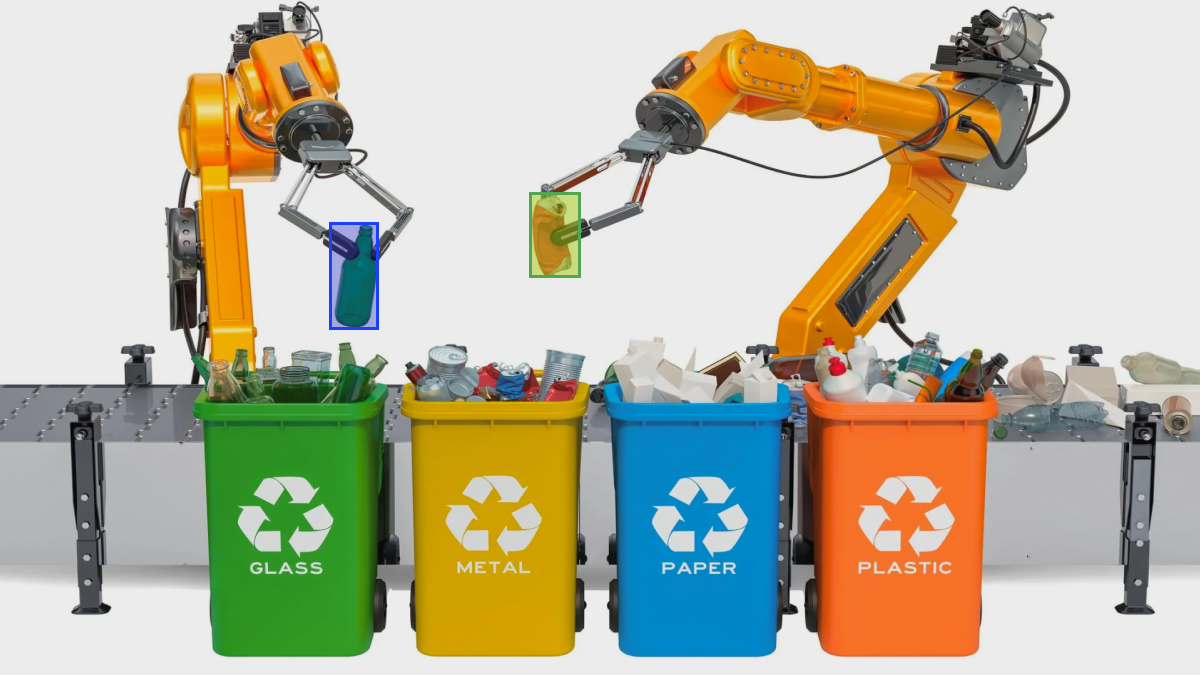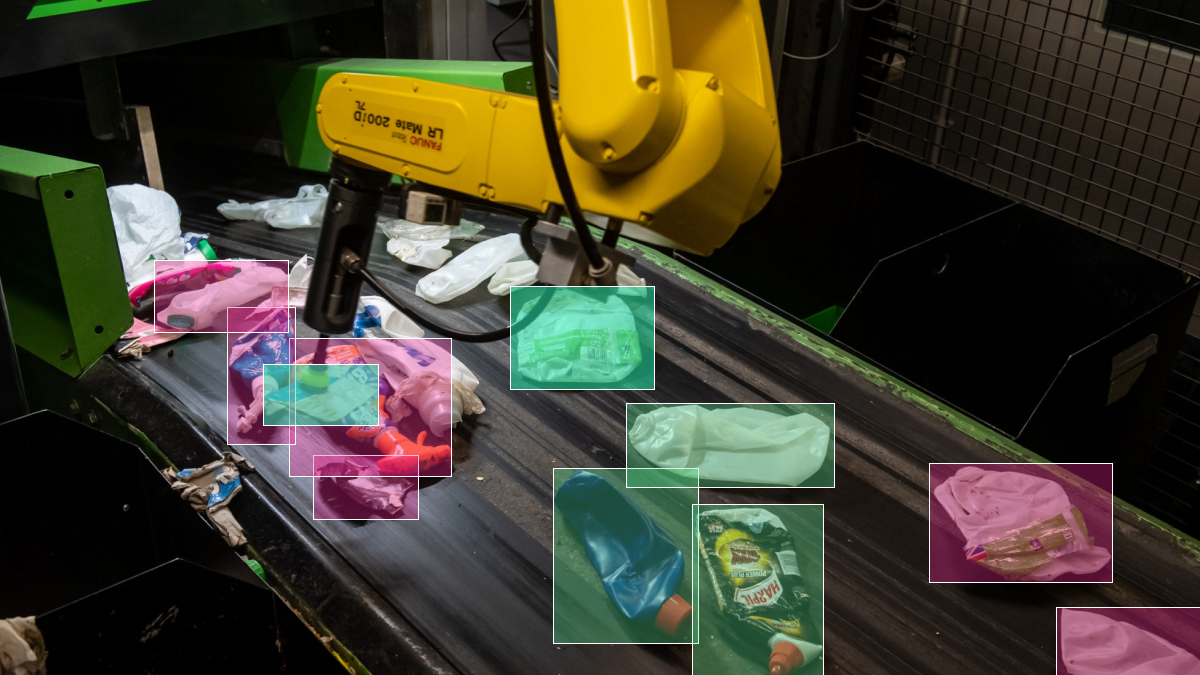Training AI to Recycle
The recycling industry is starting to get a helping hand from AI robots, which can sort trash faster and more safely than humans, and artificial intelligence, which gathers valuable data about what’s been thrown out. This could help with recycling’s various issues, such as the surge in plastic garbage that is difficult to process and consumer errors that pollute recycling streams.
In this article, we will take a look at some of the ways AI could be used to improve recycling efforts and the data annotation required to train it.
What are the Benefits of Using AI for Recycling?

By incorporating AI and automation into garbage sorting, it is possible to boost efficiency and lower costs, while also raising the value of secondary resources and enhancing the economics of recycling. The information gathered by AI technology can be used in a variety of ways throughout a materials recovery facility to save time and money, including:
- Ensuring that the commodity being sold is free of contamination to prevent expensive rejections
- Removing manual monitoring procedures that are prone to inaccuracy
- Preventing system outages by foreseeing problems
- Recognizing issues that pose a physical risk to employees
- Identifying patterns in volume and material composition to improve operations
AI-driven optical technology can provide real-time data about waste stream contaminants — such as too much peanut butter left in a jar — and other metrics that are just being explored. One of the goals is to be able to provide manufacturers with real-time product data, so they can avoid creating items they believe to be recyclable, but the robots cannot identify them in the facilities.
Mindy Support recently worked on a data annotation project to create an AI solution to improve our client’s recycling efforts. We labeled all the various types of waste in the images, reaching a quality score of 98% after the annotation phase without any additional quality validation step. This exceeded the client’s expectations by +3%. Learn more about our work on this project in our case study.
How Can an AI System Sort Different Materials?

Cameras are used to scan mixed trash streams and identify the various materials using an AI system. Thanks to the new capabilities offered by AI and its deep learning capabilities, the identification and classification of paper, plastics, and metals by color, size, shape, brand, and other characteristics can be continually improved. This helps power high-speed, intelligent robotic systems that are trained on various datasets and can physically sort, pick, and arrange objects.
Thanks to all the training datasets, AI systems have the ability to classify hundreds of different categories and characteristics of recyclables across single-stream recycling, e-scrap, and construction and demolition debris and reach a high object recognition run rate. Having said this, training data alone is not enough. High-quality data annotation is also needed to train the AI system. We explore this in the next section.
What Types of Data Annotation are Needed to Train AI Recycling Systems?

AI recycling systems rely on computer vision to distinguish between the various types of materials. This means that techniques like image classification will be needed, which detect the existence of comparable objects in all the photos in a dataset. It is used to teach a computer to identify an object in an unlabeled image that resembles an object in other labeled photos that you fed it during training. Tagging is the process of preparing photos for image classification.
Semantic segmentation will also be needed, which establishes boundaries between related things and assigns the same identity to all of them. When you wish to comprehend the existence, position, and, occasionally, the size and shape of items, you employ this strategy.
Trust Mindy Support With All of Your Data Annotation Needs
Mindy Support is a global provider of data annotation services and is trusted by Fortune 500 and GAFAM companies. With more than ten years of experience under our belt and offices and representatives in Cyprus, Poland, Romania, The Netherlands, India, OAE, and Ukraine, Mindy Support’s team now stands strong with 2000+ professionals helping companies with their most advanced data annotation challenges.





